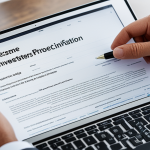Key Steps for Foreign Investors Entering the UK Real Estate Market
Entering the UK property market as a foreign investor involves a clear sequence of steps to ensure a smooth process. First, thorough initial research is essential. Understanding local market conditions, property types, and investment trends helps align your goals with current opportunities. This step includes analysing expected yields and identifying high-demand areas.
Next, preparing essential documentation is crucial. Foreign property investors in the UK must provide valid identification, proof of funds, and sometimes visa or residency information. Registration with relevant authorities, like the Land Registry, confirms your legal ownership and helps avoid disputes.
Topic to read : How can sustainable practices influence UK real estate financing?
The steps to invest UK property further require due diligence—verifying property title and checking for any legal encumbrances. Engaging professionals such as solicitors or estate agents experienced with foreign clients ensures compliance and reduces risk.
Finally, aligning your investment objectives with UK real estate market dynamics is vital. Whether aiming for capital growth, rental income, or portfolio diversification, adapting your strategy to market fluctuations, policy changes, and tax implications supports successful outcomes. This comprehensive approach caters specifically to the needs of foreign investors navigating the UK real estate investment process.
Also to see : What strategies are UK real estate investors using to hedge against inflation?
Understanding Legal Frameworks and Regulations
Navigating UK property law for foreigners is vital for foreign property investors UK aiming to secure their investment without legal complications. Recent changes have tightened compliance for international investors, making it essential to understand ownership rights clearly. Foreign buyers must consider distinctions between leasehold and freehold properties, as these affect tenure length, rights, and potential resale value.
Legal restrictions UK real estate impose checks on who can buy and how property may be used, sometimes limiting certain transactions or requiring additional approvals. For example, investors should verify if the property lies in a protected area or subject to planning constraints that could affect long-term gains.
The impact of Brexit has introduced evolving policies that influence the UK real estate investment process. Foreign investors now face new rules regarding visa status and tax residency, which may affect ownership and financing options. Staying updated on these changes helps foreign property investors UK avoid pitfalls and optimises compliance for international investors.
In sum, mastering the legal frameworks and regulatory landscape is a foundational step in the UK property investment process, securing your rights and aligning your strategy with current policies.
Navigating Taxation and Financial Implications
Understanding UK property tax for foreign investors is pivotal in the UK real estate investment process. Foreign property investors UK must navigate specific taxes such as Stamp Duty Land Tax (SDLT), which applies to property purchases and varies by price and property type. SDLT rates for non-residents can be higher, reflecting recent regulatory changes.
Capital Gains Tax (CGT) UK real estate policies affect foreign sellers on profits from property sales. Since April 2015, non-resident investors are liable to CGT on UK property disposals. This necessitates precise record-keeping of acquisition and improvement costs to calculate accurate gains.
Income tax also applies on rental income, with non-resident landlords often subject to withholding tax unless registered under special schemes. Understanding double taxation agreements between the UK and an investor’s home country can mitigate tax burdens by preventing the same income from being taxed twice.
Beyond taxes, foreign property investors should anticipate transaction fees and ongoing costs, such as management fees and repatriation expenses. Planning for these financial implications ensures compliance and preserves investment returns throughout the UK real estate investment process.
Key Steps for Foreign Investors Entering the UK Real Estate Market
Foreign property investors UK must follow a structured UK real estate investment process to maximise success and reduce risks. The first step involves comprehensive initial research—assessing market trends, property values, and local demand across regions. This ensures alignment between your investment goals and realistic market dynamics.
Next, it is critical to prepare all essential documentation accurately. Foreign investors typically need valid identification, proof of funds, and may require registration with the Land Registry to confirm title ownership. Ensuring compliance with UK registration requirements helps facilitate a smooth purchase process.
Another crucial step in the steps to invest UK property is legal due diligence. Verifying a property’s title and checking for planning restrictions prevent unforeseen issues later. Partnering with professionals experienced in foreign investment aids this review.
Finally, your investment objectives—whether for capital growth, rental income, or diversification—should directly inform property selection and strategy. Understanding how UK market fluctuations and policy changes affect these goals keeps your approach adaptive and optimised. This comprehensive, stepwise method equips foreign property investors UK to navigate the complex UK real estate investment process confidently.
Key Steps for Foreign Investors Entering the UK Real Estate Market
Successfully navigating the UK real estate investment process begins with comprehensive initial research. Foreign property investors UK should analyse current market trends, regional demand, and property valuations to identify opportunities that best align with their investment goals. This step ensures clarity in the next phases of investment.
Next, gathering and preparing all essential documentation is crucial. Typically, this includes valid identification, proof of funds, and sometimes additional registrations such as Land Registry entries to establish clear ownership. These requirements underpin a compliant and efficient transaction.
Foreign property investors UK must understand that aligning their investment goals—such as capital growth, rental income, or portfolio diversification—with UK market dynamics is vital. Since property types and locations vary widely in performance, tailoring your approach supports maximised returns.
In summary, the primary steps to invest UK property encompass detailed market analysis, meticulous document preparation, and strategic goal alignment. Each phase is interconnected and enables foreign investors to proceed confidently through the UK real estate investment process.
Key Steps for Foreign Investors Entering the UK Real Estate Market
Foreign property investors UK must carefully follow the UK real estate investment process from start to finish to ensure a successful purchase. The initial step involves thorough initial research—evaluating regional and national market trends, property prices, and demand to pinpoint the best investment opportunities. This phase supports informed decisions aligned with your goals.
Following research, preparing essential documentation is critical. Investors must present valid identification, proof of funds, and complete necessary registrations such as with the Land Registry. Ensuring all legal and compliance requirements are met prevents delays in the steps to invest UK property and secures clear title ownership.
Finally, aligning your investment goals with current UK property market dynamics maximises potential returns. Whether targeting capital growth, rental income, or diversification, consider how property types, locations, and market cycles impact value and yield. Foreign property investors UK benefit from adapting their strategies as market conditions evolve, embedding flexibility into the UK real estate investment process for lasting success.
Key Steps for Foreign Investors Entering the UK Real Estate Market
The UK real estate investment process for foreign property investors UK involves a clear series of steps. A critical first phase is comprehensive initial research to evaluate market trends, property prices, and local demand. This groundwork helps define opportunities tailored to the investor’s goals, supporting informed decisions.
Next, preparing essential documentation is mandatory. Foreign property investors UK must provide valid identification and proof of funds, while also completing registrations like those with the Land Registry to secure legal title. These formalities ensure a smoother purchase and reduce risk in the steps to invest UK property.
Aligning investment objectives with UK property market dynamics is vital. Foreign property investors UK should consider factors like capital growth, rental income prospects, and portfolio diversification when choosing properties. Awareness of how regional variations and market cycles impact value allows investors to adapt their strategies effectively within the UK real estate investment process and maximise returns.
Key Steps for Foreign Investors Entering the UK Real Estate Market
The UK real estate investment process for foreign property investors UK begins with thorough initial research. Assessing market trends, regional demand, and property valuations helps pinpoint opportunities aligned with investment goals. This foundational step ensures clarity regarding the types of properties and locations that best suit your strategy.
The next step involves preparing essential documentation. Foreign property investors UK must provide valid identification and comprehensive proof of funds. Registration with bodies like the Land Registry is mandatory to confirm legal title, ensuring your ownership rights are protected in the steps to invest UK property. Meeting these formalities avoids delays and reduces transaction risks.
Aligning your investment goals with current UK property market dynamics is critical. Whether pursuing capital growth, rental income, or portfolio diversification, understanding how different property types and regions perform is key. This alignment enables foreign property investors UK to adapt quickly to market changes and regulatory developments, optimising outcomes throughout the UK real estate investment process.





